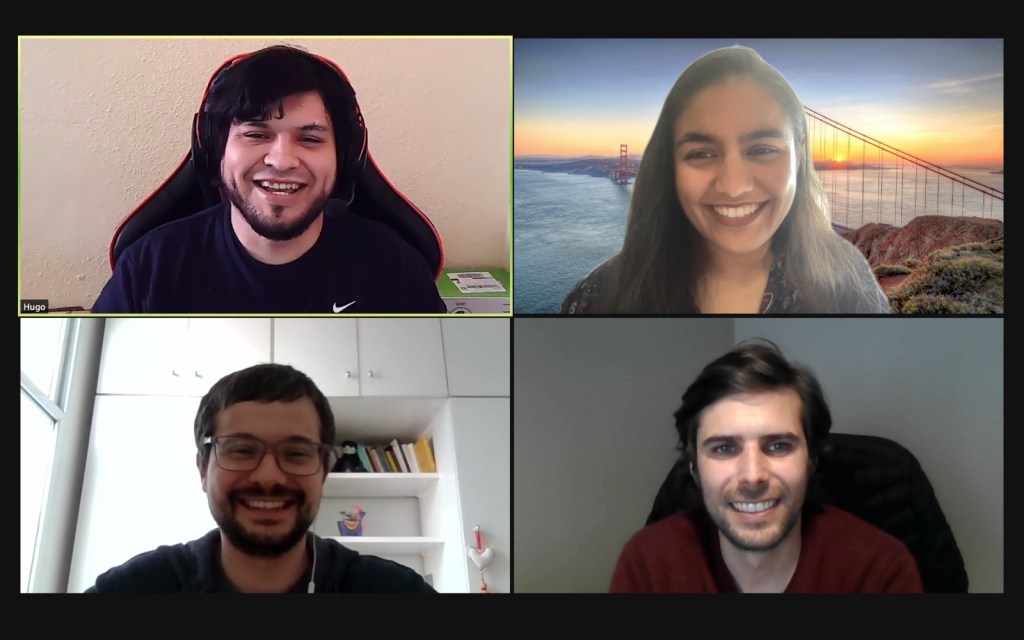Osana Salud, which aims to transform the healthcare infrastructure in Latin America, has closed on a $20 million Series A round of funding led by General Catalyst.
The Argentina-based, yet fully remote, startup was founded in 2019 — just a few months before the pandemic. Since launching less than a year ago, Osana says it has secured contracts with health insurance firms and providers that collectively serve more than 6 million patients in the region. For example, it is working with Sanatorio Güemes and PAMI, which has a network of 5 million patients, among others.
Quiet Capital, Preface Ventures, FJ Labs, AforeVC and K50 Ventures also put money in the latest round, which brings Osana’s total raised over its lifetime to $26.5 million. Lee Fixel’s Addition is also an investor.
CEO Andre Lawson told TechCrunch he was inspired to start Osana Salud because an estimated 50% of Latin America does not have access to quality healthcare. So he teamed up with COO Jorge Lopez to found the company to help change that. President Charu Sharma (the only staffer who is U.S.-based) and CTO Hugo Martin joined at a later date.
“Our vision is to enable affordable and accessible healthcare for every person in Latin America by leveraging technology,” Lawson said.
Why global investors are flocking to back Latin American startups
Specifically, Osana Salud is building an API-connected infrastructure to help the region’s healthcare industry offer a patient experience that offers “greater convenience, outcomes and value,” Lawson told TechCrunch. Its initial focus is on building solutions for telehealth, pharmacy and diagnostics.
For example, he said, Osana wants to make it faster and cheaper for healthcare players to build solutions that are “safe, secure and interact well” with other health systems. With that in mind, the company has tapped doctors and engineers to design that infrastructure.
“The goal is to empower the next generation of healthcare providers in building patient-centric solutions with the potential to positively impact the healthcare experiences and outcomes for hundreds of millions of people,” Lawson said.
In the past eight months, Osana has grown from four to about 50 people, and it expects to have over 250 employees in the next year. Despite not quite being two years old, the startup believes it’s already grown to be Latin America’s biggest telehealth company.
Sharma told TechCrunch that despite living in Silicon Valley, she was drawn to the company’s mission and found the potential to “massively transform healthcare for a whole continent” appealing.
“In the U.S. tech ecosystem, we focus on first-world problems a lot, but an emerging market like LatAm gave me the opportunity to make a meaningful impact at a very basic human need level,” she said. “As the saying goes, talent is equally distributed but opportunity is not.”
In fact, as evidence that remote work will never be the same after COVID, neither Sharma nor Martin have met Lawson or Lopez in person.
The new capital will in part go toward accelerating the company’s product roadmap, Lawson said, and helping it expand to Brazil and Mexico, where it has seen “strong inbound interest.” But primarily, it will be used for hiring.
The timing of the company’s inception was good. The pandemic shed light on the fractures of the healthcare system in Latin America, Lawson believes. It also gave the industry the opportunity to show the benefits of a “virtual first” approach, he added. And once people got a taste of it, they wanted more.
Where top VCs are investing in healthcare B2B and infrastructure
As a result, Osana says it has seen a big bump both in the number of clients and in the usage of its technology platform amongst existing ones.
“Furthermore, COVID-19 created urgency for healthcare providers, which resulted in very short sales cycles for us,” Lawson said.
Hemant Taneja of General Catalyst said the startup’s thesis aligns “perfectly” with his firm’s thesis around healthcare. Taneja himself is also a co-founder and executive chairman of San Francisco-based Commure, a venture-backed startup which is also building software infrastructure aimed at transforming the healthcare space.
“The healthcare infrastructure landscape in Latin America is highly fragmented,” he told TechCrunch. Most software vendors are small or medium-sized local vendors, who have not crossed into other Latin American geographies, Taneja pointed out.
“Osana has a variety of solutions for providers, payors and the pharmaceutical industry that are customizable and modular to create truly personalized experiences — regardless of the region in Latin America,” he said. “They can be an important unifier in a really fractured marketplace.”































Comment